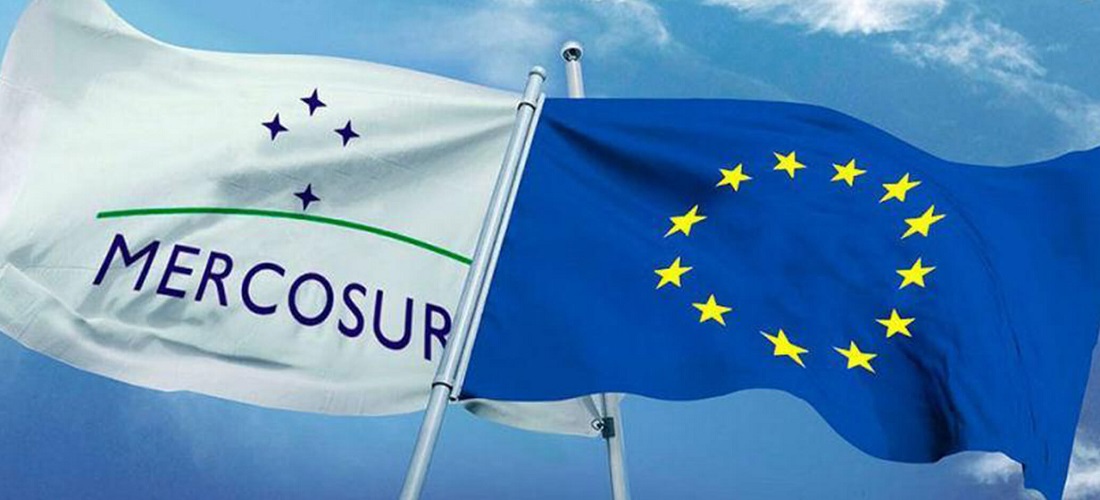
EU new anti-deforestation law to affect 34% of Brazil’s exports to Europe
Oct, 25, 2023 Posted by Gabriel MalheirosWeek 202340
The government of Luiz Inácio Lula da Silva estimates that the new EU (European Union) anti-deforestation law will have a 34% impact on Brazilian exports to Europe and 15% on the country’s total exports.
The measure applies to products in the supply chains of coffee, soy, palm oil, wood, leather, beef, cocoa, and rubber.
The chart below breaks down Brazil’s soybean exports to the EU from Jan 2019 to Aug. The data is from Datamar’s maritime intelligence service DataLiner.
Soy exports to the EU | Jan 2019 – Aug 2023 | WTMT
Source: DataLiner (click here to request a demo)
Tatiana Prazeres, the Secretary of Foreign Trade at the Ministry of Development, Industry, Trade, and Services (MDIC), is in Brussels, Belgium, to discuss the new law known as the “European Union Regulation for Deforestation-Free Products” and the agreement between Mercosur and the European bloc.
According to the MDIC, the government representative will convey the concerns of Brazilian exporters regarding the anti-deforestation law.
The meetings, scheduled for the 25th and 26th, also include officials from the Brazilian Ministry of Foreign Affairs (Itamaraty).
The new legislation came into effect on June 29, but its implementation will start in December 2024.
Some aspects of the law still need to be regulated, and these issues will be addressed during the discussions in Belgium. The meeting agenda also includes discussions with the European Commission’s Environment, Trade, and Agriculture directors.
Although there is a transition period, the Lula government and productive sectors viewed the measure with concern, fearing a decline in Brazilian exports to the bloc depending on the model adopted.
The European norm requires that importing companies based in the bloc implement pre-analysis (due diligence) systems to monitor supply chains to ensure that products do not come from deforested areas after December 31, 2020.
Companies will need to provide information such as geographical coordinates of the land where the product was produced, as well as data related to supply chain traceability.
In a statement, the Secretary of Secex (Foreign Trade Secretariat) states that they are working to defend the interests of Brazilian exporters. “At this moment, we want to understand how they intend to implement the measure, as many important points are still open,” she said.
“We want Brazilian data to be accepted for the purpose of meeting European requirements. Brazil has reputable and reliable tracking and monitoring systems with robust documented information,” she added.
In practice, it will be the responsibility of exporters to prove that products do not come from deforested areas. Otherwise, severe penalties are foreseen, such as the destruction of goods.
To achieve this, it will be necessary to enhance tracking mechanisms across the entire production chain through satellite monitoring tools, audits, and supplier training, for example.
In September, Brazil and 16 other developing countries sent a letter to European authorities expressing “concerns” about the anti-deforestation law and requesting “effective dialogue” with producer countries.
According to Itamaraty, the statement aimed to “avoid disruptions in trade and excessive burdens on producers of agricultural goods and derivatives covered by the measure.” Brazil has reiterated its “firm commitment” to combating deforestation in negotiations.
Source: Folha de São Paulo
To read the original news report, please refer to: https://www1.folha.uol.com.br/mercado/2023/10/lei-antidesmatamento-afetara-34-das-exportacoes-do-brasil-para-europa-estima-governo.shtml
-
Environment
Mar, 10, 2023
0
Suape to speed up H2V production with British aid
-
Ports and Terminals
Aug, 13, 2020
0
New Development & Zoning Plan for Imbituba port is approved
-
Ports and Terminals
Jul, 13, 2022
0
Antaq demands adjustment on Port of Itaqui new fuel terminal report
-
Other Cargo
Mar, 06, 2024
0
Brazil sees unprecedented delay in fertilizer sales


